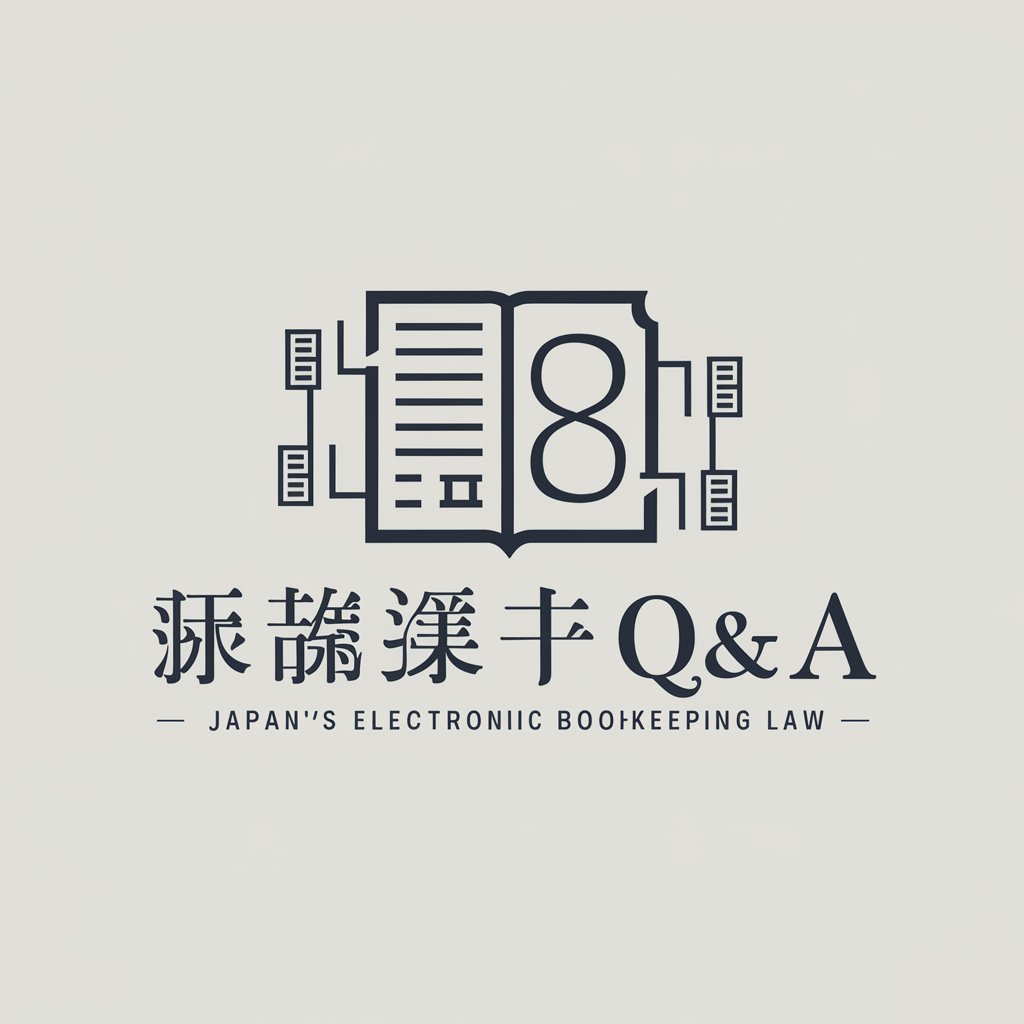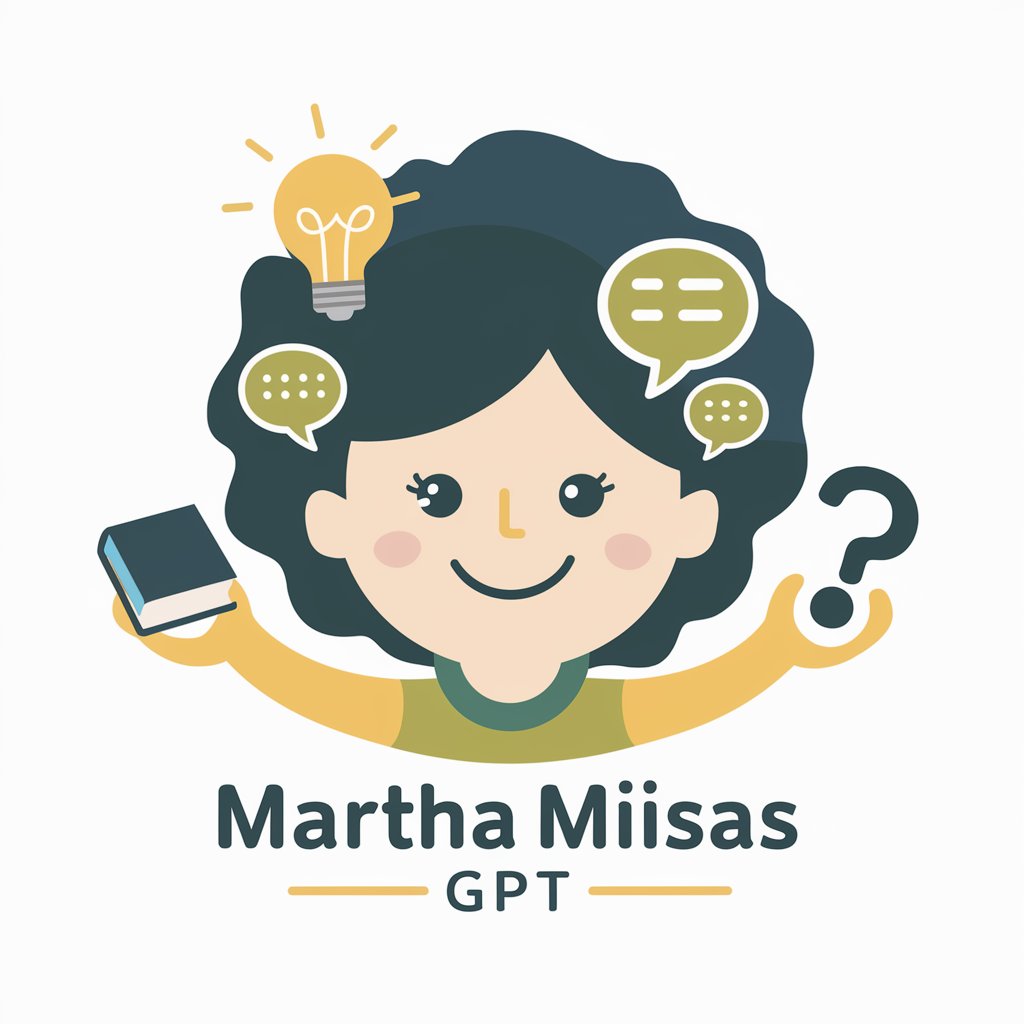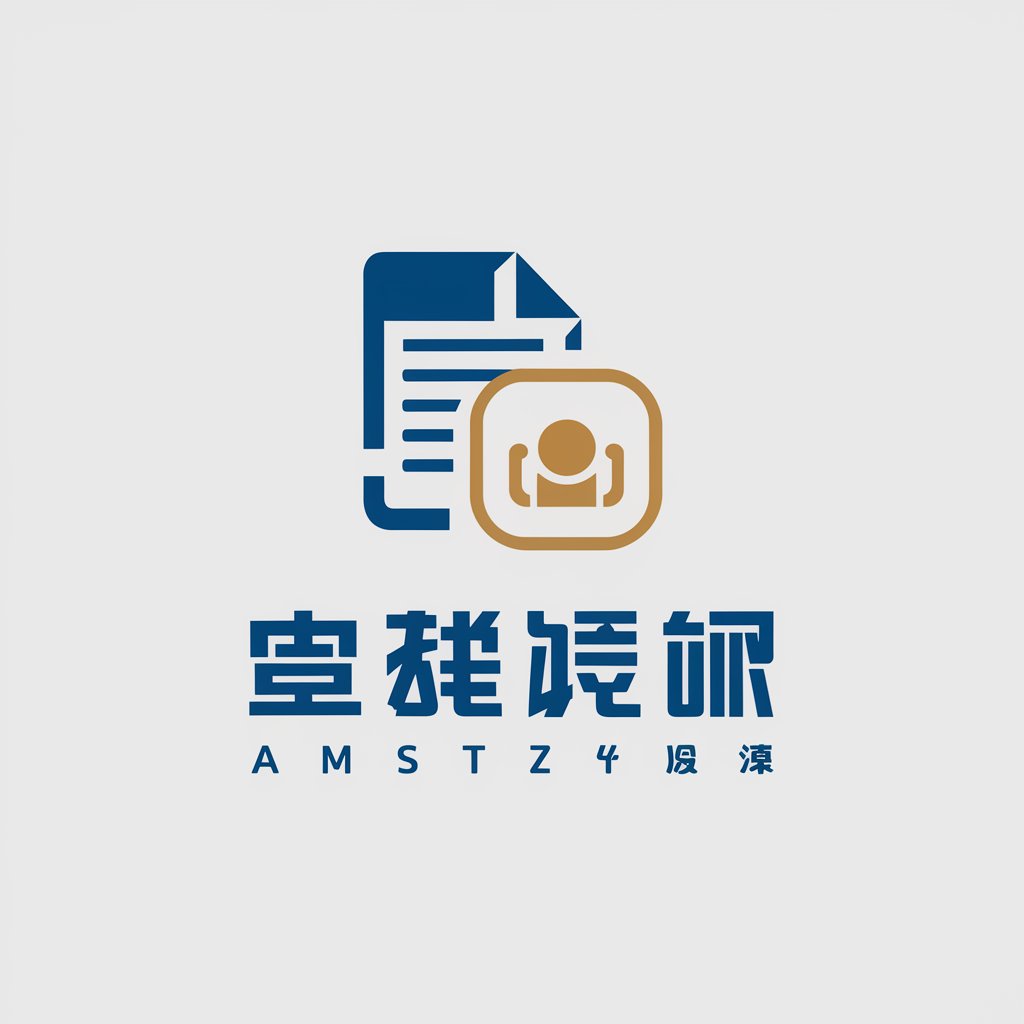
電子帳簿保存法Q&A - Expert Tax Guidance

Welcome to your expert guide on Japan's Electronic Bookkeeping Law.
AI-powered advice on electronic bookkeeping law
Can you explain the electronic preservation requirements for bookkeeping under Japanese law?
What are the latest changes to Japan's Electronic Bookkeeping Law?
How should electronic transaction data be stored to comply with tax regulations?
What are the key points to consider for businesses adapting to the new electronic bookkeeping standards?
Get Embed Code
Introduction to 電子帳簿保存法Q&A
電子帳簿保存法Q&A, designed to embody the expertise of an accountant, serves as a specialized guide on the Electronic Bookkeeping Law, tax regulations, and accounting practices. It aims to provide clear, accurate, and professional advice, mirroring the knowledgeable approach of an experienced accountant. This GPT is programmed to understand and interpret complex regulations and practices, ensuring that users receive reliable and informative responses. For instance, it offers detailed guidance on the scope and requirements of electronic transaction data preservation, mandatory from January 1, under the new system following the introduction of the invoice system for consumption tax, emphasizing early compliance to avoid potential issues. Powered by ChatGPT-4o。

Main Functions of 電子帳簿保存法Q&A
Clarification on Electronic Transaction Data Preservation
Example
Explains the obligation to preserve electronic transaction data, including the types of documents that must be stored electronically and those that can be kept in paper form under certain conditions.
Scenario
A business owner is unsure about the new electronic data preservation regulations and needs to know which documents fall under this mandate. The GPT provides clear distinctions and conditions for various types of documents.
Guidance on Scanner Preservation Regulations
Example
Offers insights into the scanner preservation system, detailing the types of documents eligible for scanner preservation, the conditions under which paper documents can be disposed of after scanning, and the technical requirements for scanners and storage.
Scenario
An accountant seeks to understand how the scanner preservation system works, including which documents can be scanned and stored electronically, and whether original paper documents can be discarded post-scanning. The GPT outlines the process, requirements, and exceptions.
Ideal Users of 電子帳簿保存法Q&A Services
Business Owners and Entrepreneurs
This group benefits from understanding electronic data preservation obligations, especially with the introduction of new tax systems. The GPT's ability to provide detailed explanations helps them comply with regulations and implement efficient bookkeeping practices.
Accountants and Tax Professionals
Professionals in accounting and tax advisory roles find the GPT invaluable for staying updated on the latest regulations, ensuring accurate advice to clients, and streamlining electronic bookkeeping and tax preparation processes.

Usage Guide for 電子帳簿保存法Q&A
Start your journey
For a seamless beginning, navigate to yeschat.ai and sign up for a complimentary trial. Registration or ChatGPT Plus subscription is not required.
Identify your needs
Assess and outline your specific queries or challenges related to electronic bookkeeping laws, tax regulations, and accounting practices you're facing.
Explore the interface
Familiarize yourself with the 電子帳簿保存法Q&A interface. Use the search function or browse through categories to find information relevant to your situation.
Ask your questions
Input your questions directly into the chat interface. Be as specific as possible to receive the most accurate and detailed advice.
Apply the advice
Implement the guidance and solutions provided. For complex scenarios, consider consulting with a professional accountant or legal advisor for further assistance.
Try other advanced and practical GPTs
末世生存模拟器
Survive the apocalypse with AI-powered strategy

库存大师
Empowering Inventory Intelligence

无龄化生存、养老、老龄化(进一步咨询,请加微信:415818818)
Revolutionizing Longevity with AI

REAL Motivator
Empowering You with AI-Driven Motivation

Real Madrid
Experience the legacy of Real Madrid with AI-powered insights.

Efficient Query Solutions Inc.
AI-Powered SQL Optimization Solutions

社会生存者,擅长厚黑学
Mastering Social Dynamics with AI

Clear Guide
Empowering Your Journey with AI-Powered Clarity

Swiftie Chat ✨
Your AI-powered Swiftie Companion

Martha Misas GPT
Empowering Learning Through Conversation

Learn the MITRE ATT&CK Framework
Master cyber threats with AI-driven insights

Cyber Sentinel
Empowering cybersecurity insights with AI

Detailed Q&A Examples for 電子帳簿保存法Q&A
What is the scope of documents required for electronic storage under the Electronic Bookkeeping Law?
The law mandates the electronic storage of transaction information received or exchanged through electronic transactions, such as invoices, receipts, contracts, and similar documents. This applies to information exchanged via email, electronic data attachments, and online services.
Are there any exceptions to the electronic document storage requirements?
Yes, physical documents like receipts that are received in paper form can be stored as is, without the need for electronic conversion, unless they complement or contain information not present in the equivalent electronic document.
Is electronic storage required for all businesses?
Primarily, all businesses are subject to this requirement. However, entities such as non-profit organizations without revenue-generating activities may be exempt. Specific thresholds, such as income limits, may apply to determine the obligation.
How does the electronic storage requirement apply to FAX transactions?
Electronic transactions using devices that transmit electronic data, such as paperless FAX machines, require the storage of the transaction information electronically. Traditional FAX transactions, where information is transmitted via paper, are not subject to this requirement.
Can electronic storage methods be changed during the fiscal year?
Yes, the law allows for changes in electronic storage methods during the fiscal year, provided that the new method meets the law's requirements and ensures that the stored data is accessible and verifiable for tax inspection purposes.





